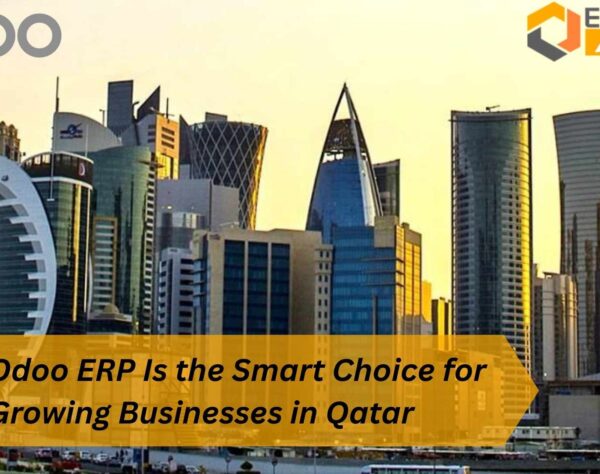
Odoo: Affordable ERP with Power to Perform

Odoo Packs Enterprise ERP Power, Not the Price
In a market saturated with overpriced, overengineered enterprise tools, Odoo emerges as the game-changer for businesses hungry for innovation without draining their budget. From small startups to growing enterprises, companies around the globe are discovering how Odoo ERP balances affordability with robust features—making it one of the smartest investments in today’s ERP landscape.
The question is no longer, “Can we afford an ERP system?” It’s now, “Can we afford not to have Odoo?”
The ERP Dilemma: Power or Price?
Traditional ERP software is often associated with complexity, long deployment times, and sky-high licensing fees. Many small and medium-sized businesses get stuck choosing between high-performance ERP tools that are too expensive and cheap solutions that lack real functionality.
Odoo ERP breaks that trade-off. It delivers world-class performance without the inflated cost. Thanks to its modular, open-source design, Odoo allows you to choose only the apps you need—whether that’s CRM, inventory, accounting, or HR—and expand as your business grows.
The Modular Marvel: How Odoo Builds as You Grow
One of the most disruptive features of Odoo ERP is its modular ecosystem. Unlike legacy ERP platforms that lock you into bundled features you may never use, Odoo offers more than 30 core modules—each designed to solve specific business problems.
- Start with CRM and invoicing.
- Add inventory and purchasing when needed.
- Later, introduce HR, payroll, eCommerce, and manufacturing.
The magic? Everything integrates seamlessly. You build your digital infrastructure like a set of LEGO bricks—no bloat, no waste.
UI and UX That Don’t Feel Like ERP
ERP systems are notoriously complex. But Odoo reimagines the user experience with a clean, intuitive interface that feels more like a modern SaaS product than traditional ERP software.
From drag-and-drop Kanban views to sleek dashboards and customizable reports, Odoo ensures your team actually wants to use the software—not just tolerate it. This enhances user adoption and reduces training time, making your ERP investment immediately more effective.
Beyond Budget-Friendly: What You Actually Get with Odoo ERP
So, what exactly are you paying for when you choose Odoo? Here’s a taste of its enterprise-grade capabilities:
- Integrated CRM & Sales: Manage leads, opportunities, and quotations within a centralized system.
- Smart Accounting: From bank reconciliation to tax reports, Odoo simplifies complex financials.
- Manufacturing & MRP: Track work orders, manage BOMs, and automate shop floor processes.
- eCommerce Integration: Sync online orders with inventory and finance in real-time.
- Project Management: Track tasks, deadlines, timesheets, and productivity all in one place.
- HR & Payroll: Manage recruitment, contracts, attendance, and salaries with ease.
The best part? These modules don’t live in silos—they talk to each other. That’s the beauty of Odoo ERP: connected operations without the usual ERP complexity.
Community Power Meets Enterprise Stability
Odoo has the rare advantage of being both open-source and enterprise-ready. The Odoo Community Edition is a free, open-source version supported by a global community of developers. Meanwhile, the Odoo Enterprise Edition adds premium features and official support for businesses that need SLA-driven services.
This dual model makes Odoo ERP one of the most flexible platforms on the market—empowering companies to start small and scale fast.
Cloud, On-Premise, or Hybrid? You Choose.
Odoo doesn’t force you into a particular deployment model. You can choose the Odoo Cloud for zero-maintenance and auto-updates, go on-premise for full data control, or even host it on a hybrid infrastructure.
This flexibility is especially important for industries with regulatory constraints, data sensitivity, or localization needs. No matter your infrastructure or IT maturity, Odoo ERP fits in.
A Platform That Evolves with You
As your business grows, your software should scale with it. Odoo ERP evolves with your strategy—whether you’re entering new markets, expanding your product line, or adding remote teams.
Through automation, real-time analytics, and deep customization options, Odoo becomes more than a tool. It becomes a strategic partner in your journey to digital transformation.
Training, Support, and Partner Ecosystem
Odoo provides more than just software—it offers a thriving ecosystem of support. Whether you choose self-service via the community or work with certified partners, Odoo ensures that help is always within reach.
Odoo also provides documentation, webinars, online courses, and partner certifications, making onboarding and training smooth for new users. Businesses benefit from fast implementation, fewer errors, and a higher return on investment from day one.
Customization Without Chaos
Many businesses hesitate to implement ERP systems due to fear of rigid workflows. Odoo turns that fear into flexibility. With Odoo Studio and developer-friendly architecture, organizations can tweak modules, add new fields, automate specific processes, or even create new apps—all without rewriting the core code.
The result? A truly customized ERP system tailored to how your business actually operates—not how a generic ERP thinks it should.
The Verdict: Smart ERP for Smart Companies
Odoo isn’t just a budget ERP. It’s a bold ERP. One that delivers the performance of enterprise solutions with the agility and affordability SMBs crave. For companies ready to grow smart—not just big—Odoo ERP is the clear choice.
📊 FAQs
1. Is Odoo ERP suitable for companies with remote teams
Yes, Odoo supports cloud access and mobile apps, making it ideal for managing remote or hybrid workforces.
2. Can Odoo replace multiple disconnected apps in my company?
Absolutely. Odoo’s integrated modules can consolidate sales, HR, inventory, and accounting into one unified platform.
3. Is Odoo secure for handling sensitive business data?
Yes, Odoo offers role-based access control, data encryption, and audit logging to ensure high-level data security.
4. How does Odoo compare to SAP in terms of customization?
Odoo is open-source and highly customizable without the licensing restrictions and vendor lock-in of platforms like SAP.
5. Can I migrate from spreadsheets to Odoo ERP without hassle?
Yes, Odoo provides easy import tools, templates, and support to streamline your migration from Excel and legacy tools.
6. Does Odoo support multi-language and multi-currency transactions?
Yes, Odoo ERP is global-ready, supporting multiple languages and currencies out of the box.
7. Can I create custom workflows and approvals in Odoo?
Yes, Odoo Studio and developer tools allow for building custom workflows, triggers, and approval chains.
8. How often does Odoo update its platform?
Odoo releases a major version annually, with continuous improvements and security patches in between.
9. What industries has Odoo been successfully implemented in?
Odoo is used in manufacturing, retail, healthcare, education, logistics, hospitality, and professional services.
10. Does Odoo offer training or onboarding support for new users?
Yes, Odoo offers extensive documentation, webinars, certified partner training, and enterprise support packages.







